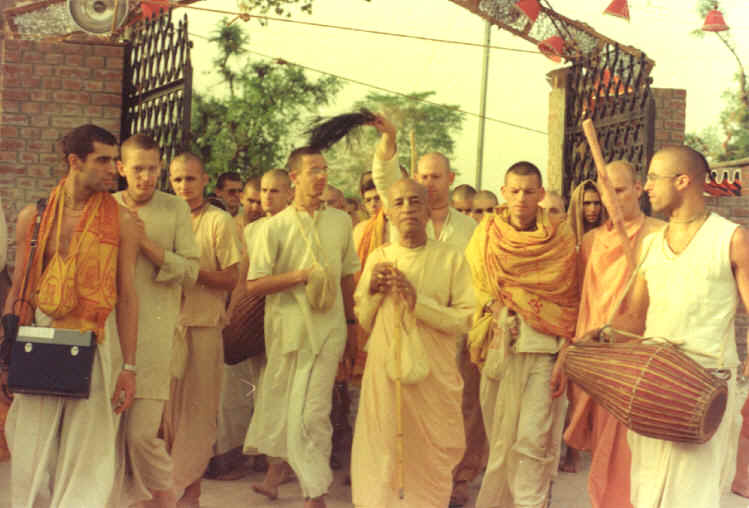The Hare Krishna Movement: Spreading Spirituality in the West

The Hare Krishna movement, officially known as the International Society for Krishna Consciousness (ISKCON), has made a significant impact in Western countries since its inception in the 1960s. Founded by A.C. Bhaktivedanta Swami Prabhupada in New York City, the movement has introduced millions of people to the teachings of bhakti yoga and the ancient Vedic traditions of India.
Origins and Philosophy
The Hare Krishna movement is rooted in Gaudiya Vaishnavism, a tradition that emphasizes devotion to Krishna, a principal deity in Hinduism. The core practice of the movement is the chanting of the Hare Krishna mantra: "Hare Krishna, Hare Krishna, Krishna Krishna, Hare Hare, Hare Rama, Hare Rama, Rama Rama, Hare Hare." This chanting is believed to purify the mind and connect the practitioner with the divine.
Swami Prabhupada, at the age of 69, arrived in the United States in 1965 with little more than a trunk of books and a mission to share the teachings of Krishna consciousness. He established the first ISKCON temple in a small storefront in New York City’s Lower East Side. His teachings focused on the Bhagavad Gita and the Srimad Bhagavatam, emphasizing principles such as vegetarianism, celibacy, and the renunciation of material pursuits.
Expansion in the West
The Hare Krishna movement quickly gained popularity in the 1960s and 1970s, a time when many young people in the West were exploring alternative spiritual paths and questioning traditional religious structures. The counterculture movement of the 1960s, characterized by its rejection of materialism and its search for deeper meaning, provided fertile ground for the spread of Krishna consciousness.
ISKCON's unique blend of traditional Indian spirituality and contemporary Western ideals attracted a diverse following. The movement’s public chanting sessions, known as kirtans, became a common sight in cities across the United States and Europe. These vibrant, joyful public displays of devotion helped to draw attention and recruit new members.
Cultural and Social Impact
The Hare Krishna movement has had a lasting impact on Western society, particularly in the areas of spirituality, culture, and social practices. ISKCON has established numerous temples, vegetarian restaurants, and educational institutions around the world. The movement’s emphasis on vegetarianism and animal rights has influenced many people to adopt a vegetarian lifestyle.
ISKCON's teachings and practices have also permeated popular culture. George Harrison of The Beatles was an early supporter and advocate of the movement, famously incorporating the Hare Krishna mantra into his hit song "My Sweet Lord." This association with popular musicians and celebrities helped to raise the profile of the movement.
Moreover, ISKCON has been active in various humanitarian efforts, including food distribution programs. The Hare Krishna Food for Life program is one of the world's largest vegetarian food relief efforts, providing millions of free meals to people in need each year.
Challenges and Criticisms
Despite its successes, the Hare Krishna movement has faced its share of challenges and criticisms. In its early years, ISKCON was often viewed with suspicion and labeled as a cult by some critics. Issues such as stringent lifestyle rules, communal living arrangements, and allegations of authoritarian leadership led to controversies and legal battles.
However, over the years, ISKCON has made efforts to address these issues and improve its public image. The organization has implemented reforms to increase transparency and accountability, and it continues to evolve as it integrates into mainstream society.
Legacy and Future
Today, the Hare Krishna movement is a global organization with a diverse membership and a broad range of activities. ISKCON continues to promote the teachings of Krishna consciousness through its temples, outreach programs, and online presence. The movement has successfully adapted to changing times while maintaining its core spiritual principles.
The legacy of the Hare Krishna movement in the West is one of spiritual exploration and cultural exchange. It has introduced millions of people to the rich spiritual heritage of India and has contributed to the growing interest in Eastern philosophies and practices in the Western world. As ISKCON moves forward, it remains committed to its mission of spreading the message of love, devotion, and spiritual awakening to all corners of the globe.



